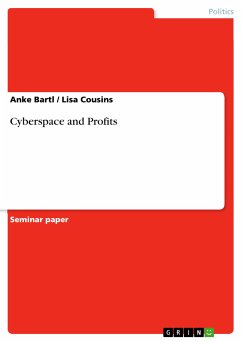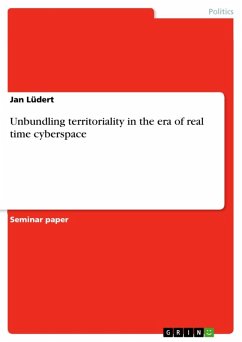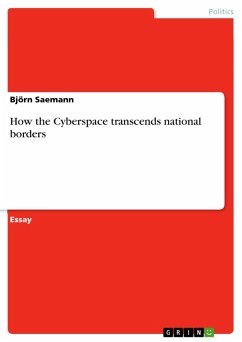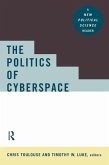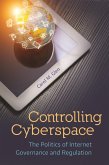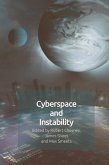Seminar paper from the year 2003 in the subject Politics - Miscellaneous, grade: Distinction, Flinders University (Social Sciences), course: Globalization and Communication, language: English, abstract: With the introduction of the Internet another imaginary world has been created, otherwise known as "cyberspace", which has produced an "information revolution". The world of cyberspace was developed through the use of a computer network connected via phonelines throughout the world. The growth of the Internet means that everyone from anywhere around the world can become a part of the global village and communicate no matter what their wealth status is. Data is exchanged freely, as there is no longer the need for circuits; therefore no restrictions apply as to the destination of the data. Through cyberspace, no rules, structure or true identity exist, as a new identity can be created at any one time.1 For example, if you were male and wanted to portray yourself as female, Cyberspace would allow that to happen. Ever improving communication technologies and globalisation have changed the world into a global village. The "information revolution" has made it possible for us to instantly communicate worldwide and therefore has altered our economic behaviour. It is now possible to do almost anything in cyberspace, and certainly business can be done via the web and hence profits can be gained or lost. Howard Rheingold summarised cyberspace as "the conceptual space where words, human relationships, data, wealth and power are manifested by people using CMC [computer mediated communications] technology".2 [...] 1 Martin Dodge & Rob Kitchin, Mapping Cyberspace, Routledge, London, 2001, p.2-5. 2 Howard Rheingold quoted by Brian D. Loader,' The Governance of Cyberspace: Politics, Technology and Global Restructuring', in Brian Loader (ed), The Governance of Cyberspace: Politics, Technology and Global Restructuring, Routledge, London, 1997, p.1.
Dieser Download kann aus rechtlichen Gründen nur mit Rechnungsadresse in A, B, BG, CY, CZ, D, DK, EW, E, FIN, F, GR, HR, H, IRL, I, LT, L, LR, M, NL, PL, P, R, S, SLO, SK ausgeliefert werden.

